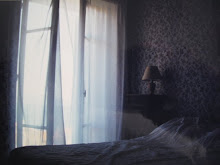The Council for
Developing Studies in its 2014 Mid-Winter Report titled ‘Changing Society’ has
gathered and analyzed data from the top 50 universities in the country. The
conclusions of this study calls for an immediate rethink of the fabric and
future of society.
It should be
noted that the Council had earlier, in its 2011 Mid-Summer Report, observed:
‘Though the rate of growth is well below what it should be, probably influenced
by global factors, it is encouraging to find that youth of both sexes are
following similar professional trajectories and the gulf between men and women,
by way of salaries or promotions and its associated ills such as discrimination
or harassment, has reduced appreciably.’
The 2014 report
emphasizes that the divide has diminished even further. The most startling
revelation of this study is that the professional trajectory of the sexes has
altered inexplicably.
In fact, the
study reveals a mind-boggling divergence in the division of labor. Unlike the
growing trend of conservatism in some developed economies as revealed by the
reduction of women in the work-force and an increasing demand for stable and
comfortable lifestyle, the situation here clearly indicates neo-liberal and
postmodern influences.
In the top 50
universities, women show a clear preference for the ‘soft streams’, leaving the
‘hard streams’ colloquially referred to as ‘crap dip/dept’ for men. The
dominance of women in the Arts departments is near total, averaging an
impressive 92.3%. In the R&D divisions of science and technology
departments, though the faculty still shows a slight bias towards males, the
student population, from undergraduate to postgraduate levels, is mostly
female. The rank-lists of the last few years clearly support this fact.
Meanwhile, in areas such as management, business administration, politics and
law, the absence of female students is startling with a meager representation
of 4.6%.
The study
mentions in passing that this development or divide could possibly explain greater
awareness and financial security along with lesser frustration in society,
shown by the dip in suicide and divorce rates in recent years, and increased
stability of marriages, even though those entering that institution are fewer.
